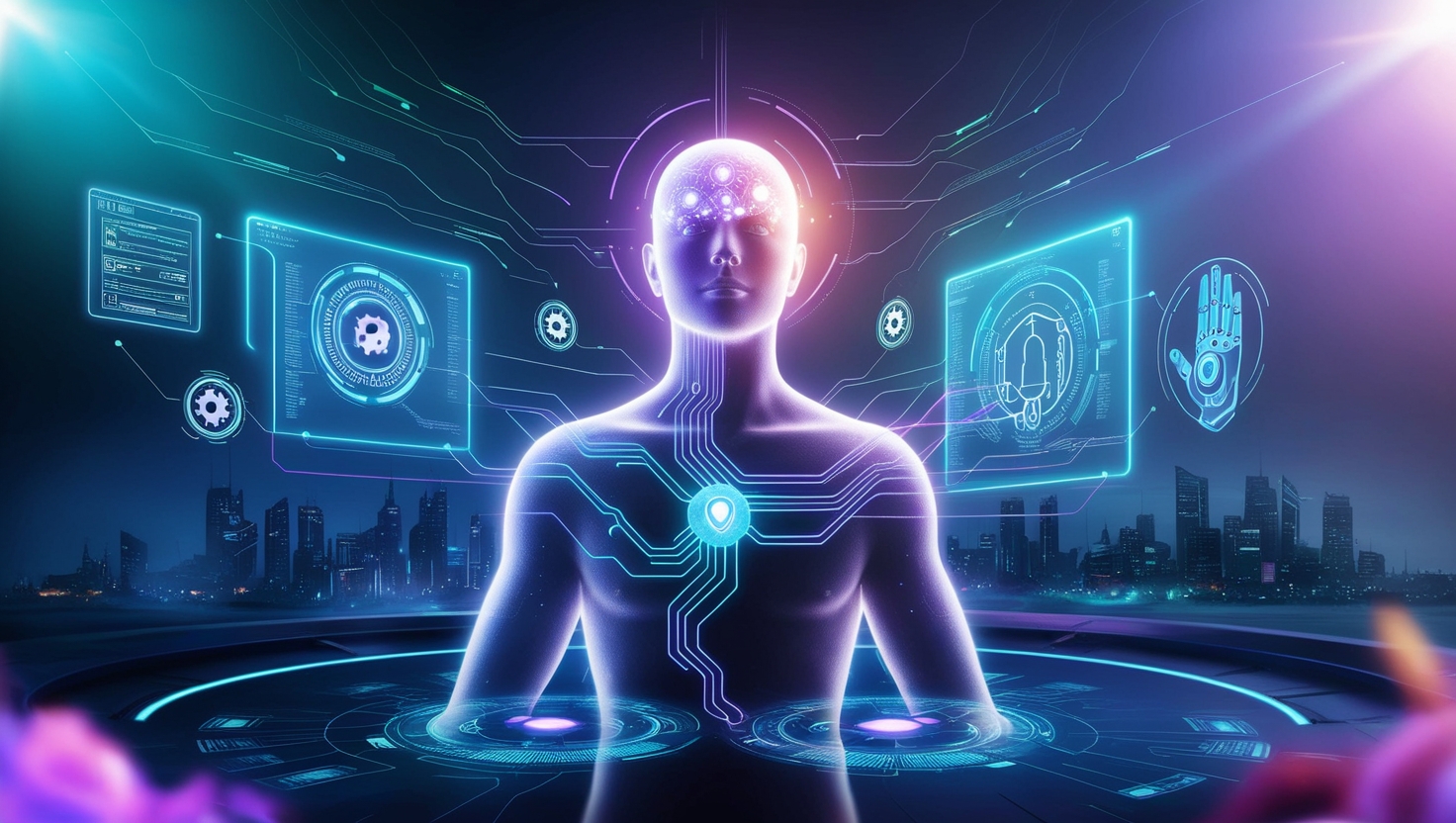Artificial Intelligence (AI) is changing how the world works. Although it’s used widely, many still find it confusing. Thankfully, understanding it doesn’t have to be hard. click here
AI, at its core, is the ability of machines to mimic human intelligence. It is often used to automate tasks. However, its capabilities go far beyond just automation.
💡 How Does AI Actually Work?
AI is built using algorithms and data. These allow it to learn patterns. In most cases, the system is trained over time. During this process, it improves through repetition.
At first, mistakes may be made. Yet, the model adjusts quickly. Because of its design, it becomes smarter with each interaction.
🧠 Enter AI Agents: Your Smart Digital Helpers
AI agents are software programs. They are designed to act independently. Most often, they analyze data and make decisions based on it.
For example, a chatbot that answers questions is an AI agent. It learns from conversations. Over time, it becomes more accurate. Therefore, users feel like they are speaking to a human.
🛠️ What Makes AI Agents Different?
Unlike basic programs, AI agents adapt. If new input is given, they change their behavior. As a result, they’re more flexible and useful.
An AI agent might predict your preferences. For instance, Spotify suggests songs based on your history. That’s an AI agent working quietly in the background.
🧩 Where Do We See AI Agents Today?
They are already everywhere. Smartphones use AI agents for voice recognition. Additionally, e-commerce platforms recommend products with their help.
Customer service, finance, and health care have adopted AI agents, too. This shift makes industries more efficient. It also improves user experiences.
Even in education, AI agents personalize learning. Based on student responses, lessons are adjusted. So, progress becomes faster and easier.
🌱 Benefits of AI Agents in Daily Life
One major benefit is speed. Tasks that once took hours can now be done in seconds. Emails are answered automatically. Packages are tracked in real-time.
Another benefit is personalization. Because of data collection, agents can tailor experiences. Your news feed is customized. Your shopping cart reflects your taste.
Additionally, agents can operate 24/7. They don’t need breaks. So, support is available any time of day. That’s a huge plus for global businesses.
⚠️ But Are There Risks?
Unfortunately, risks do exist. Data privacy is a big concern. Sometimes, too much information is collected. If it’s mishandled, serious issues can occur.
Bias is another problem. If training data is flawed, results will be unfair. People might be misjudged. That’s why transparency and ethics are critical.
Still, these issues can be managed. With clear guidelines, responsible use is possible. Regulation and auditing tools are being developed rapidly.
🛡️ How Can These Risks Be Reduced?
First, companies must be transparent. Users should know how their data is used. Secondly, AI models should be regularly tested. This helps spot bias early.
Furthermore, involving diverse teams helps avoid one-sided thinking. Including feedback from various users adds fairness. In this way, systems remain balanced.
Government oversight can help too. When used properly, policies protect both users and innovators. This builds trust and encourages safe innovation.
🚀 The Future of AI Agents
The future of AI agents looks bright. As technology advances, agents will become even smarter. Tasks we can’t imagine today will be handled easily.
Moreover, agents may become more human-like. They’ll show empathy and humor. Consequently, conversations may feel natural. That could redefine how we work and live.
Jobs may be transformed, not destroyed. While some roles will disappear, new ones will emerge. In short, AI will change work—but not eliminate it.
📚 How to Prepare for an AI-Powered World
Being aware is the first step. Learning basic AI terms is helpful. Even without a tech background, understanding AI is possible.
Taking online courses can help. There are many free resources available. These break complex ideas into simple lessons. They also include hands-on examples.
Reading news about AI also helps. This keeps you updated. As a result, you’ll feel more confident discussing AI.
Finally, practice using AI tools. Tools like ChatGPT, Midjourney, and Copilot are easy to try. They show what AI can do—and what it can’t.
🌍 Will AI Agents Replace Us?
Not entirely. While some jobs will change, others will improve. Repetitive work may be reduced. Therefore, humans can focus on creative and complex tasks.
Also, AI agents lack emotion. They can’t feel joy, fear, or empathy. These are deeply human traits. So, emotional intelligence still matters.
Collaboration will be key. Humans and AI will work together. The best outcomes will come from balance, not replacement.
UNESCO – AI and Ethics Guidelines : click here
🧭 Conclusion: AI Agents Are Here to Stay
AI and AI agents are no longer science fiction. They are a part of everyday life. From smart assistants to medical diagnosis tools, their impact is clear.
Yes, challenges remain. However, the potential benefits outweigh the risks—if used wisely. By staying informed, we can all shape this exciting future.
So, start learning. Try tools. Stay curious. AI agents are powerful partners—and your journey with them is just beginning.




